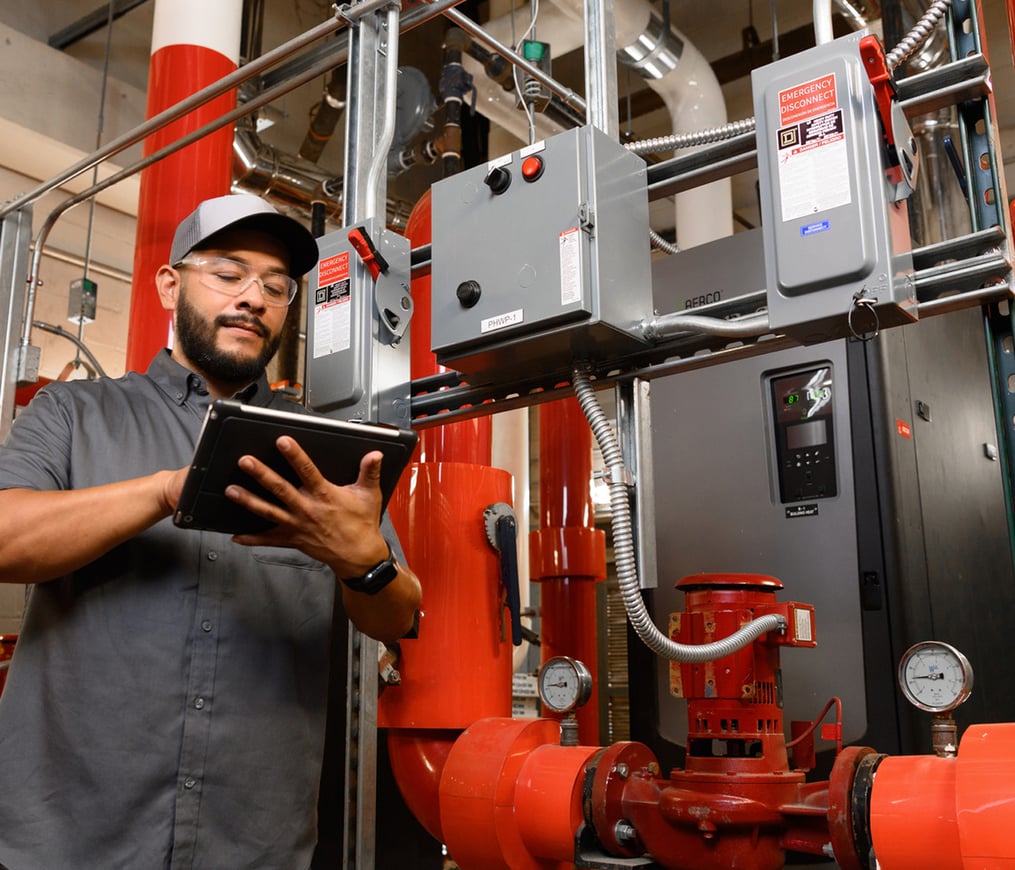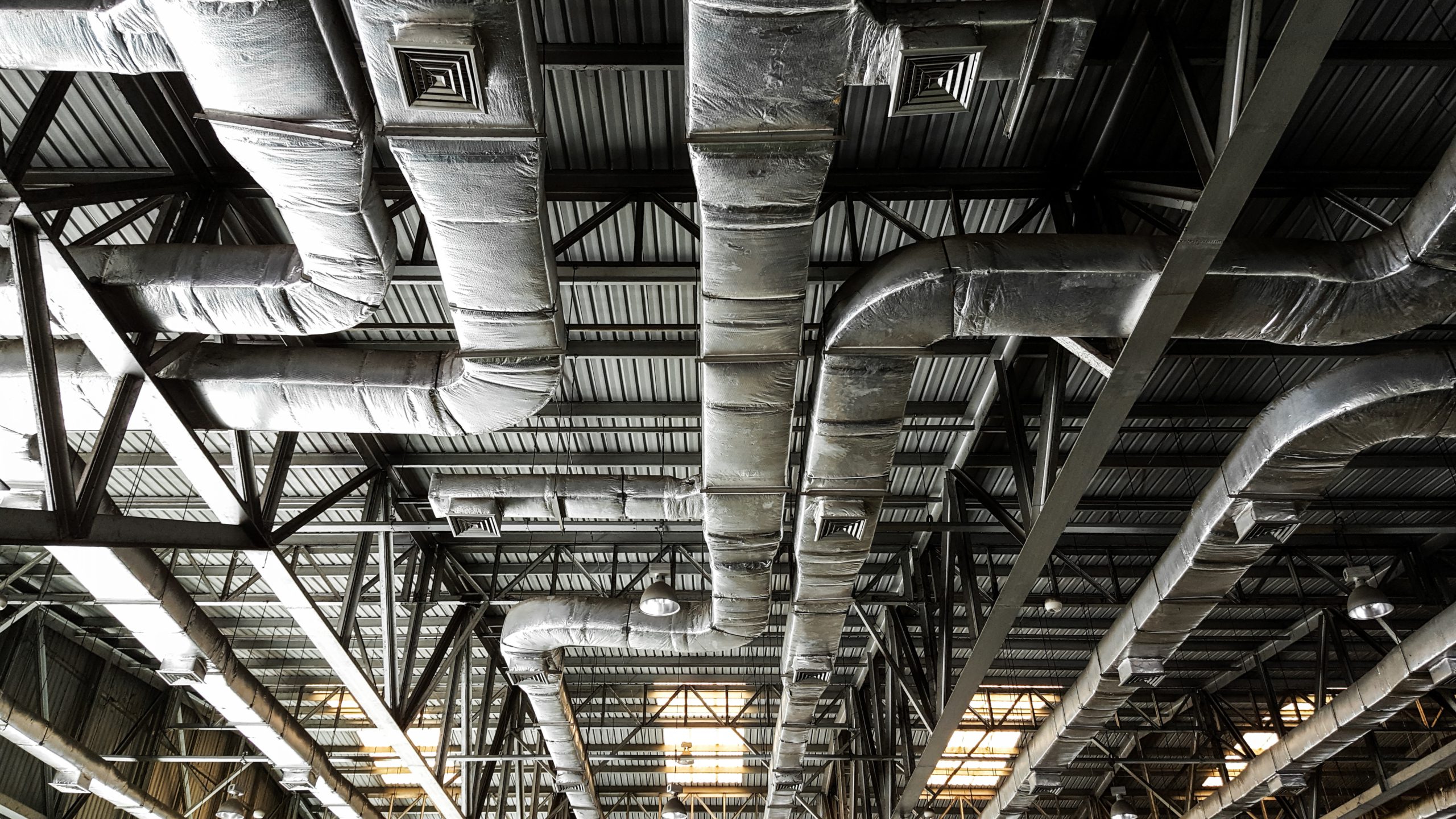Commercial HVAC Contractor Providing Professional Cooling And Heating Solutions
Commercial HVAC Contractor Providing Professional Cooling And Heating Solutions
Blog Article
An In-Depth Check Out Cooling And Heating Services and Their Effect On Power Performance and Expense Cost Savings
With technological advancements like smart thermostats and high-efficiency elements, the potential for maximizing system efficiency is substantial. As we explore the elaborate relationship in between Heating and cooling systems and operational costs, including the change towards ecologically friendly options, the concern emerges: just how can these approaches be efficiently applied to make the most of both eco-friendly and financial advantages?

Importance of Heating And Cooling Equipments
cooling and heating systems are a vital element of contemporary buildings, playing a crucial role in maintaining healthy and balanced and comfy interior settings. These systems, incorporating air, home heating, and ventilation conditioning, are vital for managing temperature level, humidity, and air top quality, thus making sure the wellness of passengers. Efficient heating and cooling systems add substantially to developing an ideal interior climate, which is crucial for both household and business spaces.
In commercial structures, cooling and heating systems are important to supplying a secure and efficient environment. By regulating interior climate problems, these systems help avoid the development of mold and the spread of air-borne impurities, thus securing the wellness of clients and employees. Furthermore, in household settings, HVAC systems enhance living conditions by using consistent thermal convenience and improving interior air top quality, which is important for overall health and wellness.
Furthermore, the style and maintenance of cooling and heating systems have a direct effect on energy usage and functional prices. Effectively made and preserved systems can dramatically reduce power use, resulting in reduced utility bills and a smaller carbon impact. The effectiveness of these systems thus plays a vital role in advertising sustainability and power preservation within structures, highlighting their value in the contemporary architectural landscape.
Developments in Cooling And Heating Modern Technology
Innovation in heating and cooling modern technology is reinventing the method structures manage interior environments, introducing a brand-new era of performance and control. Recent innovations have actually concentrated on maximizing power intake while enhancing user comfort. One significant development is the assimilation of clever thermostats, which utilize expert system to discover occupancy patterns and change temperature levels as necessary, minimizing unnecessary power use.
Variable Refrigerant Flow (VRF) systems represent one more considerable leap forward. These systems enable for precise temperature control in different zones of a building, improving convenience and reducing power waste. VRF technology is particularly advantageous for large business areas, supplying flexibility and scalability.
Additionally, the introduction of Internet of Things (IoT) tools has actually transformed cooling and heating systems into interconnected networks with the ability of real-time data collection and analysis. This connectivity makes it possible for predictive maintenance, making sure systems run at peak effectiveness and minimizing unanticipated downtime.
Additionally, innovations in products and layout, such as making use of high-efficiency coils and compressors, have boosted overall system performance - Heating Contractor. The fostering of ecologically friendly refrigerants likewise highlights the sector's commitment to sustainability
These technological innovations are essential in lowering functional costs and environmental effect, setting brand-new criteria for developing climate monitoring.
HVAC Maintenance and Effectiveness
Ensuring optimum efficiency of a/c systems prolongs past technical improvements; it also rests on effective upkeep practices. Regular maintenance is critical for maintaining performance, reducing power usage, and prolonging the life expectancy of heating and cooling systems. The key goal is to ensure that all components operate at their peak potential, therefore decreasing power wastage and maintaining consistent interior comfort levels.
Regular maintenance jobs, such as cleaning or changing air filters, inspecting cooling agent degrees, and checking ductwork for leakages, are important for preventing unnecessary stress on the system. Clogged or dirty filters can obstruct airflow, causing the system to function harder and take in more energy. Similarly, inadequate cooling agent levels can reduce cooling efficiency, causing greater operational expenses.
Furthermore, periodic examinations by qualified experts can recognize potential problems before they intensify right into expensive repair services or system failings. These assessments usually include examining electrical links, adjusting thermostats, and ensuring the total stability of the heating and cooling system. By dealing with small problems early, services and house owners can avoid unexpected break downs and enhance power performance.
Cost-efficient Cooling And Heating Solutions
For those aiming to get the most out of their air, home heating, and air flow conditioning systems without breaking the like it bank, exploring economical cooling and heating solutions can make a significant distinction. One prompt measure is to buy programmable thermostats, which allow users to establish particular temperature levels for various times of the day, optimizing power use and reducing unneeded usage. By automating temperature changes, home owners can achieve substantial savings on energy expenses.
Regular upkeep is another important component of cost-effective a/c monitoring. Making sure that filters are cleaned or changed regularly, ductwork is secured, and units are serviced by experts can protect against pricey repair work and boost system durability. Precautionary maintenance not just maintains system effectiveness yet likewise helps in avoiding unexpected failures that can result in costly emergency situation repair work.
Furthermore, retrofitting existing systems with energy-efficient parts, such as variable rate motors or high-efficiency compressors, can be a sensible financial investment. These upgrades enhance operational effectiveness, lower power usage, and can frequently be implemented at a portion of the cost of a complete system substitute.
Ecological Influence Decrease
Lowering the environmental impact of HVAC systems is essential in today's quest of lasting living. Heating and cooling systems are significant contributors to energy consumption, accounting for virtually 40% of power usage in industrial structures. This energy need often depends on nonrenewable fuel sources, bring about greenhouse gas discharges and ecological degradation. Transitioning to extra efficient systems, such as those utilizing renewable resource sources, can considerably mitigate these influences.
Technical improvements in a/c style and procedure, consisting of the integration of clever thermostats and energy-efficient warmth pumps, are critical in reducing carbon footprints. These innovations permit optimized energy use, reducing wastage and enhancing general system performance. Additionally, adopting routine upkeep techniques guarantees a/c systems run at peak efficiency, further curtailing unneeded energy usage.
Furthermore, using eco friendly cooling agents is critical, as conventional cooling agents, like CFCs and visit their website HCFCs, have actually been terminated due to their ozone-depleting homes. Modern options, such as hydrofluoroolefins (HFOs), offer minimized ecological dangers, lining up with global ecological procedures. By welcoming these sustainable practices, heating and cooling solutions can play a transformative duty in decreasing environmental effects, advertising power performance, and cultivating a much more lasting future.
Verdict

In addition, the design and upkeep of Heating and cooling systems have a straight effect on energy intake and operational costs. Normal upkeep is critical for maintaining effectiveness, lowering power usage, and expanding the life period of HVAC systems. HVAC systems are significant factors to power intake, accounting for nearly 40% of energy use in business buildings. In addition, taking on routine upkeep techniques ensures A/c systems operate at peak performance, my response further cutting unnecessary energy usage.
The transition to ecologically pleasant HVAC systems better promotes and minimizes operational expenses sustainability. (Heating Contractor)
Report this page